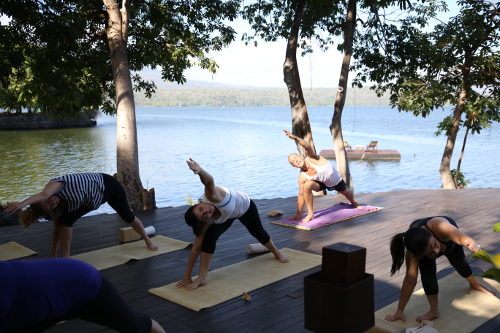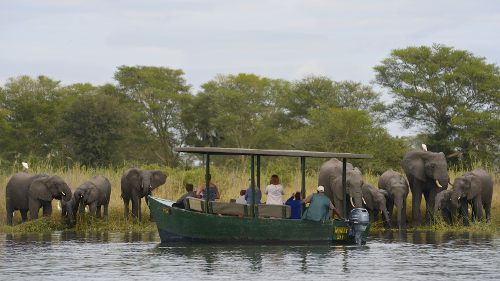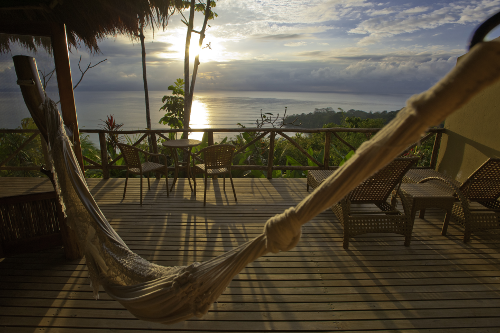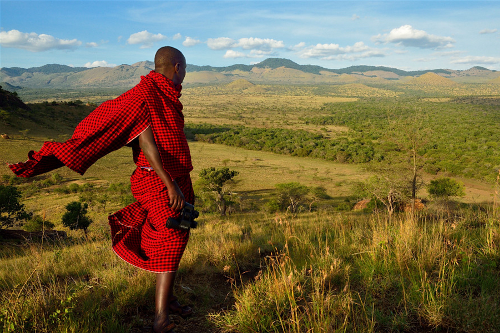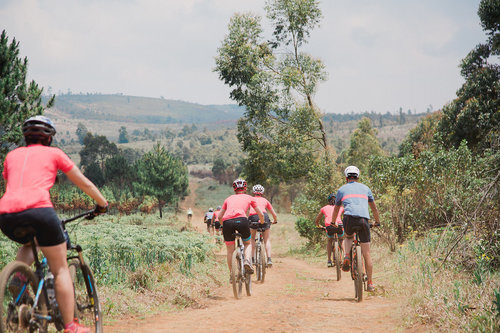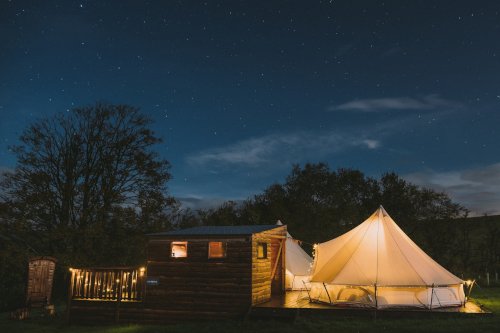Sustainable Travel Trends for 2023
/2023 is the year travel is expected to really bounce back!
The decade so far has been characterised by health issues, social fragmentation, economic volatility and a sense of disillusionment with crisis after crisis that has led to shock, instability and insular behaviours. Maybe this is why while 97% of consumers say they want to be more sustainable as a whole, only 13% are actively changing their behaviour.
We’ve developed coping mechanisms for protection of sanity, selves and what we care about. Life has been a challenge and we’re tired of bad news. We’re seeking creature comforts and longing for leisure without uncertainty, forms, checks, queues…
Many people put off trips last year, still under uncertain travel restrictions until at least Spring 2022 for even mainstream travel destinations; some like Japan, Bhutan and Hong Kong only just opened up at the end of 2022.
Now with restrictions eased globally and Covid vaccines, protocols and paperwork requirements settling, we’re able to consider trips we’ve not been able to so far this decade - the world is our oyster again!
50% of travellers say that investing in a vacation remains a top priority for them.*
So we come into 2023 with mixed feelings, having adjusted to unpredictability, seeking flexibility yet stability, adventure yet safety, inspiration yet security.
It may not feel so different to what we expected last year (did we get it right?), but if 2022 was about the return and reset of travel, 2023 is about rebuilding travel, and interest in sustainable tourism has leapt on years, despite a very hindered sector so far this decade.
So, what can we expect this year? Is it a new dawn and a new day for sustainable travel?
Jump to:
1. Travel
To state the obvious perhaps, but let’s face it, it hasn’t been so much of a trend since 2020!
Post-pandemic “revenge travel” arrived last year and remains, with many postponed international trips now possible, offering a Great Escape.
72% report that travelling will always be worth it, despite the chaos**
46% of consumers globally say travel is more important to them now compared to pre-pandemic, and nearly as many 43% are backing up that claim by upping their travel budget***
Nearly half are likely to travel internationally in the next 12 months. Compared to only 12% in 2020 and 35% a year ago, this is a drastic and important shift that points to international travel returning to pre-pandemic levels.****
Happy-go-lucky hedonism will remain a motivating factor in the face of cynicism and burnout – paving the way for indulgence in a way that reassures travellers.
After 2-3 years of restrictions-fatigue and domestic tourism necessity for many, we’re keen to get back away further afield to foreign climes.
This could be the year we start to see patterns emerging of what the “new normal’ after Covid will be, with values having changed. But (how much) will it be sustainable? It is possible to be hedonistic and sustainable!
“The moral licensing in the sector and louder calls for industry change are sure to shape everything from ‘micro-vacations’ to business travel in the year to come” *****
• 78% of global travellers intend to stay in a sustainable property at least once in the coming year.*
Making up for lost time, and not losing more on endless transfers, border crossings and checks, we expect to see
- Longer duration trips be it in one accommodation or country tour. Slow travel savours our stays. Fewer trips for longer improves our footprints.
- Out-of-peak: Shoulder season and/or non-honeypot destinations means a better experience with more personal space and less stress on each other, local people and places.
- Multi-activity destinations – more experiences in one place for maximum time use.
- Multi-generational travel – with accommodations to suit, as families and friends celebrate new ways of being and spending time together.
> Go to: Lake Nicaragua
Wedding, party or family or friends group? Since Covid, our partner island is now open for whole-island bookings, accommodating up to 21 guests! A magical island experience filled with peace and tranquillity, it’s an extraordinary lake, beach and jungle trip with the romance of a hideaway on this exotic and private island rolled into one: https://www.earth-changers.com/sustainable-places/nicaragua-jicaro-island-ecolodge
- Local connection – no more mainstream trip providers, travellers want real local – immersion, culture, environment, communities and not crowded destinations:
• 66% want to have authentic experiences that are representative of the local culture*
- Sustainability – unsurprising, given this is what this blog is about, or to us as specialists in it, all the above feed into responsible, sustainable and regenerative tourism, but thankfully now widely recognised as not a ‘niche’ product, marketing strategy or add-on but core to tourism:
71% of travellers want to make more effort in the next year to travel more sustainably (up 10% from 2021)*
Plus, people
“want a more holistic approach to protecting and living in the environment, one that centres around regeneration and moves past basic, reactive measures and towards a proactive and restorative approach towards nature, community, and the planet... In the face of this planetary emergency, younger and explicitly eco-minded consumers are directly connecting their lifestyles and consumption to the fate of the planet. Although sustainability considerations have impacted most consumer categories, from luxury cars to hygiene products, discerning individuals are increasingly looking for brands and services that offer more than buzzwords and explicitly and ambitiously tackle eco, equity and accountability issues at the same time” *****
You know where we are for travel :)
- Great value – better bang for your buck!
The great news is, all the above mean added value compared to mainstream trips, important for conscientious consumers faced with external factors such as inflation, higher fuel prices, ongoing political conflicts, and natural disasters***
For sustainable travel, buy less (frequent) but buy better
> Go to: Malawi
A great value Africa or safari destination whatever your group, if you’re interested in really immersing in local culture, supporting female social entrepreneurs, visiting stunning fair trade tea estates, hiking up the biggest mountain, supporting students, experiencing the wildlife, relaxing at the most stunning lake ecolodge, all whilst contributing to micro-finance projects, this trip (or others with our partners) is for you! Women’s Partnership Challenge: https://www.earth-changers.com/sustainable-places/malawi-responsible-safari-company#womens-partnership-challenge
2. Cost Your Living
Covid, the war in Ukraine, subsequent fuel and food price rises…
Our wallets are being squeezed, and public transport and services may face cuts, but it’s never been more important to put your money where your mouth is and visit and support destinations’ people and places post-Covid. Not least because of large Russian- and Chinese-size holes in the global market, both as destinations and travelling public.
Some people are adopting conservative money habits, others are adopting YOLO habits: It possibly depends on your affluence. The market is polarising: Both budget and five-star sold out last year. Some airlines & accommodations are re-apportioning capacities between first class, mid- and budget tiers in response.
“People are unsure about how much they will be able to spend on vacations because of economic turbulence”***** – this makes the ‘all-inclusive’ approach very popular, so you know everything is paid upfront.
This can include for relatively budget options which can offer incredible experience.
55% of global travellers are looking for ‘off-grid’ style vacations to escape from reality and switch off and experience life with 44% wanting a more back-to-basics feel*
> Go to: Madagascar:
Volunteer in conservation to preserve one of the planet's most unique and endangered environments, support community development and tackle extreme poverty. You’ll stay in a raw bush camp at one with the surrounding littoral forest and contribute to genuine scientific research. Food included: https://madagascar.co.uk/volunteer/conservation-research-programme
Or it can be a 5* approach with an “overall shift to a more premium/luxury way of travelling” (Cassam Looch, Travel, Media, And Entertainment Expert*****).
According to Booking.com*,
48% will only consider travelling ‘off-grid’ if it can be at a more indulgent stay, but
53% will have a non-negotiable requirement: phone and internet connection at their destination is essential.
49% plan to be more indulgent in their spending habits while on vacation to make up for the lack of travel during the last couple of years
Coupled with the need, or desire to ‘Work-From-Anywhere’, not just #WFH, more remote flexibility ‘workations’ (ugh, the word!) ‘bleisure’ (double ugh!) are possible – as long as wifi is reliable. In fact,
29% will take a bleisure trip (business travel + leisure travel) and 28% will take a flexcation (booking accommodation for a longer duration to mix work and play).***
44% of the global workforce is looking forward to their employer planning a ‘real life’ work trip to bring people together and
51% would like to see their employer use the money saved from the shift to remote/hybrid working models spent on corporate travel or retreats.
(Interested in a group or corporate retreat in a truly sustainable venue? We can help you with that too – drop us a line)
> Go to: Costa Rica
Our partners in sustainable luxury on the Osa Peninsula, at one of the most nature-immersed ecolodge experiences in the world have upped the ante with upgraded suites, villas and Internet via wifi in social areas, plus in all rooms now via fiber optic cable: https://www.earth-changers.com/sustainable-places/costa-rica-lapa-rios
3. Retreat for Well-Being
All-inclusive doesn’t just mean knowing where you are financially.
77% of travellers also believe that an all-inclusive stay is the least stressful way to travel (Wyndham Hotels & Resorts, 2022).
And we’re all in need of some post-pandemic self-soothing!
“Extended lockdowns and cautious living have prompted an increased focus on personal wellbeing, both physically and emotionally. Consequently, luxury wellness is growing rapidly and could be considered a recession-resistant industry as affluent consumers place a high priority on these services." (Chandler Mount, Researcher Of The Lifestyles Of The Worlds Affluent And Wealthy***).
But with Covid still prevalent, do we really want to be cheek-by-jowl with hundreds or even tens of other travellers?
Plus with heightened awareness of health and sustainability matters such as around pollution and endocrine issues, where physical and mental wellbeing require regular leisure escapes and reconnection with the outdoors, these can also bring education for greater understanding.
> Go to: Croatia
Our partner’s luxury nature resort in the heart of the wilderness in the Velika Plana (‘Great Plain’) hidden valley of Velebit National Park UNESCO Biosphere Reserve is in complete harmony with the surrounding natural beauty of green landscapes, expansive views, history, culture, and endless adventures of its magical surroundings. With peaks to climb, rivers to cross, caves to visit, spacious meadows to rest in at this specialist equestrian centre too, it’s a real ranch and restorative retreat. https://www.earth-changers.com/sustainable-places/croatia-linden-tree-retreat-ranch
Seeing is believing on this 3 week ocean conservation expedition where you’ll see the problem of plastic pollution for yourself, as you sail through the heart of the garbage patch. What ends up in our ecosystem waters ends up in our bodies. Observe and document larger debris, and undertake educational manta trawls for micro-plastics – maybe even take home your own sample of mid-ocean plastics! https://www.earth-changers.com/sustainable-places/pangaea-exploration/#north-pacific-gyre
4. Commit to Nature Protection
For years, it’s been suggested that an equivalent of the Climate Cop 27’s Paris Agreement was needed for nature, especially as both issues are so inter-dependent.
A 30x30 approach, protecting 30% of the world’s land and oceans by 2030 (to align with the UN Agenda 2030 for the Sustainable Development Goals), was touted.
Those finally came together in reality in December 2022 at the UN Biodiversity Summit in Canada with the Global Biodiversity Framework. This offers a vital opportunity for developing a coherent global policy, framework, approach and targets for nature protection, in the same way it’s been done for climate or the SDGs as a whole.
With travel highly dependent on nature, be it wildlife or landscapes, for 80% of its goods and services (WTTC, 2022), this is sure to have a major impact both on the focus on eco- and conservation tourism.
> Go to: Chumbe Island, Tanzania.
The Global Forum on Human Settlements, in collaboration with the United Nations Economic and Social Council, has recognized our partner as globally significant under the category of 'Tourism (Scenic Spot) & Ecological Restoration', describing it as an 'inspiring example' for the world after its efforts contributing to nature and marine conservation for the past two and a half decades.
Never mind 30x30, here you get 100x23! That is, 100% protected area – both marine and island – already by 2023. This was the first private marine park in the world: https://www.earth-changers.com/sustainable-places/tanzania-chumbe-island
> Go to: South Africa
Certified carbon-negative since 2018, our partners are amongst the best in the world at understanding the links between conservation and climate (as well as communities, culture, commerce - tourism). Thanks to over 20 years of conservation efforts, their 6,170-acre Private Nature Reserve within a 42,000-acre Fynbos conservancy is home to more than 817 plant species, of which over 100 are endangered. They’ve cleared 6925 hectares of invasive alien vegetation, planted 2303 indigenous trees (by 2021), maintain organic gardens and a farm to enable sustainable sourcing, reduce food miles, ensure food integrity and security, and generate income for local people;
They have now created Africa's first Florilegium art gallery and book – for you to discover the most beautiful biodiversity heritage through stunning botanical artwork, an expression of commitment to the preservation of the natural treasures. This has to be one of our favourite projects of 2022! https://www.earth-changers.com/sustainable-places/south-africa-grootbos-fynbos
5. Community Sense
During the pandemic, people found safety and optimism in numbers. Where institutional support fails, unions and co-operatives offer safety nets for collective action as the viable solution to compounding crises and alienation. Even before Covid,
41% of global citizens rated their social cohesion as 'weak'? (Ipsos Social Cohesion Index, 2020)
For many, finding purpose, and connecting with communities around it, has been a literal lifeline offering a sense of meaning and belief in something greater to anchor through the ongoing rollercoaster.
We saw during the pandemic how our destinations partners – charitable and regenerative as they are – stepped up to fill institutional support roles with their societies, despite tourism being shut down and no income. At a time of demotivating stress, they inspire optimism and loyalty.
They fed their communities with food banks, and kept on 100% staff on pay. They understood everyone was part of the same ecosystem, and to connect, communicate and collaborate together for mutual advantage over individual gain. They built relationships, and a more hospitable world together.
Now it’s time for karma. Those organisations and communities will thrive and reap the benefits. They’ve worked together and supported each other for survival; their bond is stronger than ever and people want to reward the loyalty that was voluntarily given.
For most consumers, time and money are more precious than ever. People want their decisions – big and small – to contribute to greater cause. So we all want our trips to really count!
We discern those organisations who are shining stars who take responsibility, and look to support them with our business. Their customers get the best experience, because they looked after their staff, who in turn will look after the guests, for them.
– and now back to hospitality again!
Check out how some of our destination partners helped their local people during the pandemic: https://www.earth-changers.com/blog/2020/5/4/coronavirus-covid19-amp-tourism-from-hospitality-to-health
6. Greenwash Tidal Wave Approaching
Sadly, for every amazing sustainable partner, there’s hundreds more in the market out to exploit.
For years we’ve known as sustainable tourism mainstreams, Greenwashing in Tourism would flow. But even we were shocked at the end of 2022 witnessing the swell of what may become a Tsunami.
At a recent global travel trade event, suddenly sustainability was the word heard from every stage’s speakers. People and organisations who have never mentioned a word about it saying “of course we’ve always been involved in sustainable tourism (we just didn’t talk about it)...”
Sustainability in travel is now de rigueur.
There’s still no merging of certifications (#7,2021) – rather, even more organisations are wanting to offer sustainability advice. But, on the plus side, even more companies are wanting help getting on a journey of sustainability improvement (#9. 2022).
Eco-anxiety over climate, biodiversity, inequalities and the pandemic have made people more aware than ever of the interconnected nature of the systems we rely on, the links between social justice and sustainability, and the need for a long term approach. Resilience and stability is sustainability, and intersectional education key.
But sustainability isn’t binary black or white. What is required now is a more nuanced understanding and approach to its messy continuum and trade-off of shades of green,
“Attention is turning away from the sanitised, individual-centric sustainability of recent years, with people demanding more concerted and meaningful action from brands and governments”*****
Among Britons,
86% say they want brands and businesses to actively take steps to minimise their impact on the environment (Campaign Live, December 2021), and
52% inform their purchase decisions based on a brand’s eco-credentials (The Drum, July 2021).
Given this shift in demand, the rise in organisations wanting to appear eco-friendly is jumping. But,
“the same consumers who look for socially conscious brands are becoming hyper-conscious of superficial virtue-signalling”*****
“50% of UK Gen Z respondents say that when it comes to brands, speaking out on issues they care about is not enough”*****
In a global review of 500 websites by the International Consumer Protection Enforcement Network,
40% of green claims were found not only to be false (The CSR Journal, July 2022).
with
71% cynicism from consumers (Meaningful Brands, Havas, 2021)
No wonder there’s still an eco attitude-action gap. False eco claims may be illegal. The UK’s Green Claims Code now highlights existing laws legislating for consumer protection against false advertising and misrepresentation. Likewise, the EU is currently working on legislation that will require brands to back up any green claims they make, while in the US, the FTC is updating its ‘Green Guides’ for marketers.
Certifications are all well and good, but ultimately organisations have the responsibility to back up their claims, certified or not. That’s why we publish in our Places all the impacts our partners create, because we’re not driven by the desire for certification badges, but rather the actual impacts they create, and hyper transparency around that.
We are working on getting certified ourselves, not because we’re not focused on sustainability, but to understand opportunities for making sure we’re communicating it better!
> Go To: Our Values
https://www.earth-changers.com/blog/2018/10/18/earth-changers-values
And check out our Places or and contact us for more – we discern our partners for true sustainability. They prioritise their people, positive impact and purpose, and have evidence-based, trust-worthy reporting.
7. Get Well meta-Versed
The metaverse will continue to penetrate, but does virtual reality help or hinder sustainability?
35% of travellers are keen to embark on a multi-day VR travel experience; it will educate, entertain and inspire*
On the one hand, more technology servers means more emissions, if not powered by zero-carbon alternative energy.
On the other, ‘try before you buy’ could remove unwanted or unwarranted travel with its associated impacts and keep us in touch with our fragile environment and destination needs to save the planet more without travelling from home. However,
60% believe that a virtual experience is not fulfilling enough to check it off the bucket list.
Does this ultimately detract from the very essence of travel —random meetings, serendipitous happenings, enrichment from immersion in real-life cultures and experiences?
We suspect we’ll see both – thus additional incremental emissions – especially with hybrid VR/reality options: Why would Disney hire an actor to play Mickey when you can meet a real animated one?!?
We are seeing increasing AI. But where automations and chatbots are coming to rule mainstream travel which has become increasingly databased and commoditised, the fragmented, complex and very human and emotional nature of sustainable tourism is not so easy to automate or replicate. After all, it’s not just about delivering programmed operations, but understanding destination needs and creating solutions - and robots can’t understand or create.
And there’s no alternative for real travel, not least for how we learn appreciation of others’ cultures and tolerance of different ways. (and we can’t travel without peace, SDG 16)
But tech systems will certainly help with impact monitoring. Think web analytics Data is Big? It hasn’t got anything on the Sustainability triple bottom line – now that is Big Data!
As we increasingly measure our carbon for the Paris Agreement, nature for the Global Framework, all the SDGs for Agenda 2030, we’re going to increasingly need systems to help us review and prioritise the impacts and trade-offs we increasingly see to manage the complex real world with virtual models.
> Go To: How to Measure Tourism’s Impact?
Part 4: Rethinking Tourism Development - Doughnut Economics: https://www.earth-changers.com/blog/2022/9/22/how-to-measure-tourisms-impact-part-4-rethinking-tourism-development-doughnut-economics
8. Count Carbon:
People are beginning to understand “where individual agency hits its limit and where industry responsibility becomes essential to securing a better future”: but where
73% of people believe companies must act for the good of the planet and society,
71% don’t believe the promises they make – underscoring the cynicism around the CSR status quo*****.
But since Covid we’ve witnessed a vast shift in attitudes to sustainable tourism: we’d anecdotally suggest a 10 year acceleration.
It’s not just about responding to consumer values and demand changing, but significant industry evolution: the sector tourist boards and companies understand now the need to be resilient means sustainability. It’s not a niche value-add, but a requirement going forward. Everyone from tourist boards to tour operators is realising they need to get sustainable and decarbonise.
We’re of course pleased to say we and our partners have been focused on this, not just for years, but it’s core to our inception and development. Here’s our Climate Declaration.
With more focus on carbon accounting, and potential future carbon budgets, perhaps this will highlight the importance to the world of the global south who contribute little to global emissions but suffer the negative impacts! Especially given 2022’s COP27 breakthrough agreement on “loss and damage” fund for countries vulnerable to climate disasters after decades of pushing.
> Go To: Kenya
Our partners go from strength to strength. Not only do they do everything we talked about in 2022 to decarbonise (solar, coffee husk stoves, electric vehicles, 100% carbon-neutral in their own/first for Maasai REDD+ Carbon Project, and their conservation trust has just raised US$1million as a ‘shining example of how frontline indigenous communities can build transformative new economic opportunity through wise management of natural resources’.
Now families can combine a stay in the area with the first carbon-negative and zero-emissions lodge in Africa: A truly transformative experience for young people and their families interested in eco-tourism and discovering other cultures, where the journey is just as important for the children as it is for the parents: https://www.earth-changers.com/sustainable-places/kenya-campi-ya-kanzi
9. Switch Up Your Transport
It seems lockdowns made local transport operations double down on sustainability. Added to that, the cost of living and fuel crises have redoubled efforts to switch from fossil fuels to alternatives.
“the Net Zero Emissions by 2050 Scenario requires transport sector emissions to fall by a further 20% to 5.7 GT [gigatons] by 2030. In 2020, global CO2 emissions stood at 7.2 GT.” (The International Energy Agency, 2022)
To reach carbon neutrality, we need major shifts in government policies, to modernise legacy infrastructure, and seriously accelerate investment in renewables. We’ll also need (intellias.com, 2022), but how likely is:
No new internal combustion engine vehicles sold past 2035
20% vehicles stock is electric by 2030.
20-50% of car trips shift to public transport, cycling, or walking to achieve necessary carbon reductions. (IEA, Tracking Transport, 2021)
During the pandemic, the use of personal mobility (biking, micromobility) went dramatically up — and many continue to keep their new mobility habits.
Smart cities are rethinking, considering safety and sustainability, with electrification amplifying, whether escooters, ebikes, cars, buses, trams or trains. Budgets and space are being reapportioned, such as Singapore and Amsterdam increasing the number of car-free zones, nudging citizens to use public transport networks instead.
Free public transport in Europe has proven to be effective in reducing traffic, pollution, and getting more people on board, such as in, Luxembourg, Malta, Talinn, certain Danish islands, or Hesselt, Belgium. Other countries like Germany have offered heavily discounted train tickets.
Rail resurgence across the world, with sleeper services bringing back the romance of great railway journeys, in Europe linking cultural capitals. (TimeOut, 2022)
We don’t subscribe to a hard-and-fast ‘no-fly’ movement, because tourism is far too important to people and places’ survival and often only reachable by air (read more), but we do prescribe taking alternatives where and when possible!
Thankfully there’s a great deal of work happening on sustainable aviation, although it is still years off. The International Civil Aviation Organization (ICAO) CORSIA scheme has now kicked in, setting an emissions limit to 2019 levels (the base year adjusted to earlier given 2020 pandemic lockdowns), although it only includes international aviation and not domestic (EU ETS covers that in Europe), does not cover non-CO2 greenhouse gas emissions, and is not based on emission reductions but on offsets for emissions increases, aiming for "carbon neutral growth".
So it looks like we’ll see a hybrid fuel approach in the sector between sustainable biofuels, electric and hydrogen, depending what’s ready when and scalable to commercial needs and volumes: there’s certainly the need, but each option has great challenges to overcome such as range, power, refuelling and price, and it’s not happening fast enough.
Government support is heavily required to align investment in the research, development and infrastructure required with Paris Agreement promises.
> Go To: www.Earth-Changers.com > Places
We promote local tour operators and accommodations all over the world, leaving you to choose how you would like travel from wherever you are in the world!
> Go to: The latest sustainability news - keep up!
We often feature mobility stories! Every week we publish 10 news highlights from the worlds of sustainable travel, tourism and development on our Facebook and LinkedIn pages: Follow for the latest!
10. Regenerate capitalism?
We talked about regenerative travel seeds blossoming (#12, 2021) and being required (#10, 2022), will 2023 be the year systems start to change? Financial systems and support need to align with values: Currently short-term ROI expectations jar with long term sustainability investment requirements. New models are needed to match purpose and values integral to business growth for triple bottom line wins for people, places and organisations.
Aspirations to change the rules and governance we live by hold strong among everyday activists.
Did you know:
75% of young Britons describe the climate crisis as ‘specifically a capitalist problem’(Institute of Economic Affairs, 2021)
80% of people in advanced economies say they’re willing to change how they live and work to help reduce the effects of climate change (Pew Research Center, 2021)
Like an army of leaf-cutting ants across a rainforest floor, its scale may not be immediately noticeable to those above, many of whom don’t look down, but this grass-roots, bottom-up movement is massive:
Brian Eno (musician) at a conference, talking about how to make a planet that actually works.
“The products of such a conference are new ideas and new relationships. I made at least 20 new connections, and if the same was true for all the other attendees that means something like 10,000 new relationships were formed during that one conference. These are relationships held together by ideas: the scaffolding of a social movement.
In the same week, there were probably 100 other conferences worldwide discussing the same topics. That suggests a million new relationships centred around climate-change issues were formed in a week. And that’s just in formal settings. We are all talking about the same things. Few of us have any idea how many people are involved”. (The Economist, 2023)
“While the World Economic Forum calls for ‘stakeholder capitalism’ that involves fair corporate taxation, anti-corruption initiatives, upholding human rights, and allowing fair competition, younger generations are aiming for more radical and explicitly anti-capitalist solutions. Individuals, nations, and businesses are voicing the idea that global systems of production and consumption are damaging to the planet and must include positive impacts beyond profit.”*****
We agree! Did you know we actually operate a different model of tourism?
Traditional models, which take your money, often see as much as 90% never reaching the destination of your stay.
> Go to: www.Earth-Changers.com
With us, you pay local supplier prices and we ensure the money goes direct to the destination first, empowering their local jobs, logistics and commercial arrangements. They’ll then typically pay us a marketing/finders’ fee/commission.
That way, our model flips it, so they have all the money upfront, and it is up to them to pay us a small percentage.
Where would you like to go this year? We have a limited number of places on the site (let’s be honest, Covid lockdowns screwed up our business resource to scale the website…) but we have hundreds more in our little black book until we get them online!
Tired of trying to work out what’s actually really sustainable and regenerative? We can advise you on travel to the best travel providers all over the world: Just drop us a line to enquire!
The above is just our thoughts from sector insight, backed up some data evidence. What do you think?
Main references:
*Booking.com Sustainable Travel Report 2022
**Booking.com, Seven Predictions for the Creative Reimagination of Travel in 2023
***Expedia Group, Traveler Insights, Q4, 2022
****Expedia Group, Traveler Value Index 2023
*****Canvas8, Expert Outlook 2023


